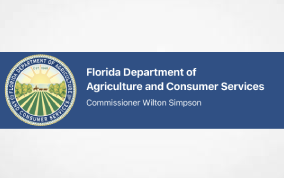Authored By: Stacey Worthy
From professional athletes to Hollywood celebrities to pet owners with high-strung Yorkie’s, everyone seems to be touting the apparently miraculous benefits of cannabidiol (CBD), a naturally occurring chemical compound derived from the cannabis plant. Proponents claim the products, ranging from oils and creams to infused foods and beverages, can help alleviate symptoms of numerous maladies including insomnia, anxiety, blisters, and muscle aches and may even reduce cravings in opioid users. Yet, despite the many potential uses of CBD, consumers need to understand that not all CBD products are created equal. Any CBD product purchased over the counter is classified as a supplement, which means it is not regulated by the FDA, it has not been tested for safety, and its purported benefits have not been scientifically proven or verified.
The rapidly expanding CBD market is projected to reach $16.3 billion by 2026, and CBD-infused products are already widely available, not just in vitamin shops, but in coffee shops, video stores – even your localWalgreens. But they are supplements, not medications, and it is illegal for the manufacturer of anysupplement – be it CBD, ginseng, or fish oil – to make unsubstantiated medical claims about the benefits of its product, which by definition have not been tested for safety or efficacy.
This is not to say that CBD supplements don’t deliver on their promised health benefits, but there is a lack of legitimate scientific evidence to support the claims made by many manufacturers. To date, there is no proof that CBD supplements can slow the aging process, treat memory loss, or cure cancer, as some manufacturers suggest. In fact, the FDA recently took action against three companies who made some of the most outrageous claims about the health benefits of CBD products, and consumers must be aware that over-the-counter CBD supplements that promise medical benefits are breaking the law and may not work as advertised.
Beyond unverified health benefits, CBD supplements may come with other risks. There have been reports of adverse CBD interactions with prescription medications, negative effects on liver function, and, in extreme cases, contamination with pesticides or mold. Unregulated CBD products may also contain THC – the psychoactive constituent of the cannabis plant that produces the intoxicating “high” of marijuana – even if it is inadvertent. Finally, despite widespread use and availability, CBD products are still illegal in many states, as evidenced by the highly publicized arrest of a grandmother who was in possession of CBD oil while at Disney World in Florida, where CBD products are illegal until July 1.
While the jury is still out regarding the legality and health benefits of CBD supplements, there is a CBD product that is approved by the FDA and that does have proven medical efficacy. A new class of prescription drugs that use cannabidiol as the active ingredient – like Epidiolex, the first FDA-approved drug derived from marijuana and used to treat rare, severe forms of epilepsy in children – are now coming on the market.
In an effort to regulate the non-prescription supplement market, the FDA recently held its first public hearingon cannabis and cannabis-derived compounds to address the questions many of us have about CBD products: What is the purpose of consuming CBD, and what scientific evidence demonstrates that it has the intended effect? What concentration and daily intake levels of CBD are generally safe? Are there certain individuals or animals who should not take CBD? With answers to these and other questions, the FDA should be able to better protect consumers by issuing CBD supplement and food regulations specifying standards for purity, potency, and consistency. The FDA will likely also need to require warnings about safety concerns in certain individuals or circumstances.
Until then, consumers must be mindful that manufacturers of CBD supplements are not backed by independent, scientifically credible evidence of CBD’s safety for its intended uses, nor are the products standardized for purity and potency. And most importantly, consumers must be educated about the differences between regulated CBD medications backed by science and over-the-counter CBD supplements whose benefits have not yet been fully tested or proven.
Stacey L. Worthy, is counsel to Aimed Alliance, a nonprofit health policy organization that works to protect and enhance the rights of health care consumers and providers.
















